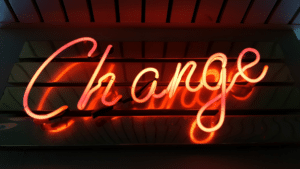As the Coronavirus pandemic gathers strength, consumers are assailed by new challenges. As their concern with staying healthy increases, so does their desire for brands to be transparent, ethical and supportive. Consumption and the consumer-brand relationship cannot but be affected by this new situation. To decode French consumers’ expectations, Adwise conducted an online community with 18 people between the ages of 25 and 55[i] in France.
By Florence Hussenot[ii]
CONSUMERS ARE SEEKING THE ESSENTIAL

The idea is about going back to a more meaningful type of consumption: “it reveals our overconsumption”; “clearly refocusing on the essential, the important and the necessary; anything futile is secondary, and I hope to continue this way”. Supporting this idea, the participants talked first about deconsumption (“I really have to curtail my consumption of everything”), or about reallocating consumption to more intangible things: spending time with family, enjoying life, exercising, looking after themselves.
Their next instinct is to go back to a more thoughtful kind of consumption. For them it seemed essential to plan, anticipate and think things through (“I’ll definitely curb my consumption, be less impulsive”).
Many questions are raised with regard to working conditions (including their own). The people surveyed are experiencing a renewed awareness that behind every product there are lives – the lives of men and women who before were lost in the predominant logistical picture (“do I want to buy this tee shirt that was made at a deplorable human and environmental cost, that is shipped to me from the other side of the world and then is delivered to me despite the current health risks?”).
Now more than ever, the social dimension of production is becoming an issue in the decision-making process, in the same way as the environmental dimension. The crisis accelerates demands for CSR, with a leaning towards the idea of bringing production back home: “You have to find meaning … I’m going to pay more attention to where the things I buy come from. Try to opt for locally made products, made in France, or made in Europe. In order to support the economy here and not be dependent on faraway countries.” [iii]. This is why some of the people surveyed tend to look for alternative brands: “I’m definitely planning to go for smaller brands and smaller companies in order to help them through these difficult times”. In textiles, these are new, emerging fashion brands such as Balzac and Make my Lemonade, or the American retailer Everlane – all of whom are taking this soul-searching on board (“I don’t see much of it in the historical brands – apart from little collections that seem very cosmetic, very green washing”).
Lastly, the theme of health and wellness is increasingly important[iv] : “I’m going to go for more responsible brands, especially for cosmetics. With fewer ingredients and fewer additives.”
ACTIVE CONSUMERS, WHO EXPECT BRANDS TO BE SOCIALLY INVOLVED

Here is what they wrote: “They have to make commitments, show their solidarity, and protect their employees.” Consumers want to put their ‘buying power’ to good use: “Some, on the other hand, have been absolutely silent, which I don’t think is very cool of them. The brands that haven’t said one word about the situation we’re experiencing are definitely not going to be getting my money anymore.” “I’ll be loyal to a brand that’s with me in the good times and also in the bad times.”
And two aspects were especially shocking for them:
- Brands that are not behaving ethically towards their employees by continuing to operate their online stores and offering free delivery: “I wasn’t happy to get emails saying that their online store was remaining open: at what cost for their employees? Do sales come before human beings?”; “We get all these emails from stores saying ‘pamper yourself’, ‘free delivery’, but is this the right time to put the delivery people at risk?”
- Brands that take a ‘business as usual’ approach to marketing — because today people are expecting empathy from brands: “I want brands to be experiencing what we’re experiencing and not see us like we’re just so many banknotes”; “For starters I want brands to talk about what’s going on, it seems almost shocking that some brands roll out their advertising campaigns on Instagram just like nothing was happening, without saying anything about Covid”. The sincerity of messages is key: “I got an email from an online business that really caught my attention. The subject of the email was ‘how to keep the kids busy so that the parents can relax’. I thought it was going to be ideas for activities, but no, not at all, it was a range of outdoor equipment for sale – trampolines, tents, playhouses. I didn’t appreciate this.”
CONSUMERS WANT EMPATHY AND COLLECTIVE BENEFITS

Consumers feel that this is the time for brands to do a bit of introspection and roll out a plan of action to ensure a more positive environmental and ethical impact.
The values that will count most tomorrow imply a collective benefit:
- The ecosystem, organic materials, environmental protection and eco-responsible products, directly related to health but also to respect for the environment.
- Generosity
- Solidarity(“But I’m interested in finding out more on, for example, initiatives to help those worst off during this period”)
- Awareness (“We’ve had enough of brands that overproduce and make the workers suffer for it, and who are also making products for a certain type of person, excluding all those who don’t fit the mould. I want to consume brands that pay attention to the world they live in.”)
- Transparency: “I think I’m going to be more vigilant about brands’ commitments, I’m going to expect more transparency on manufacturing conditions, the materials used, etc. … I expect brands to challenge the way they work, for them to make genuine commitments. Improve their human, societal and environmental impact.”
- Universality: “In my opinion we’re in a total age of globalization and consumption. It really proves that we need to move forward together, that we’re all human beings and that we should stop being so individualistic.”
- Responsibility towards local communities
In this context, the French consumers mentioned a number of excellent initiatives by brands:
- Retailers that offer “seniors only” shopping times; meal deliveries to elderly people and others unable to cook for themselves; restaurant chains that donate food (e.g. Dominos, who donate pizzas to the Caen emergency teams). Foodette, a food subscription box company, has ceased to operate but continues to send out newsletters with great recipes to make at home.
- Several brands, including H&M, have sent out a positive message by donating money to Covid-19 research (“and they now have free delivery and offer free exchanges or refunds up to 100 days instead of 30 days, which I feel is a positive thing as they’re adapting to the situation”).
- “I was struck by Pimkie’s message that they’d closed all of their stores as well as their online store because they felt it was pointless now that people are under orders to stay at home, it’s one of the only stores I’ve seen make this decision… good for them !!!”
- “I’m also very happy to see the initiatives by a group like LVMH, which immediately started producing alcohol gel and now they’re making masks.”
- “I also like the Le Pantalon newsletters a lot, they keep us informed of initiatives and that they decided to keep their online store open but won’t start delivering again until after the stay-at-home order is lifted.”
Some of their suggestions:
- “I’d like to read statements from brands where they inquire into their role in spreading the virus, saying what their thoughts about this are, what measures they’re taking to comply more. Or brands could tell people about any brilliant initiatives by customers, or create “support groups” to make people feel less isolated and make it easier for them to interact with one another during this period. It could simply be in the form of a Facebook group, for example.”
- I’d like to receive tutorials, ideas for keeping busy, for keeping the kids busy. Suggestions of films to watch or books to read. Or else a fabulous discount at my favourite shop when things get back to normal.

- Communicate with your customers during this stressful period, but communicate with empathy; talk about protecting employees, about your commitments to social and environmental responsibility; provide help to your customers. To do this, you need to know them well and understand them. Use value is limited because of the situation, so brands need to work on their image value.
- An appetite for consumption will no doubt erupt as soon as the stay-at-home order is lifted. But this appetite will be for brands with meaning. Now is the time to think about the brand’s values and personality, and to factor in expectations for new collective benefits of solidarity and generosity, expectations regarding the brand’s role in the economy and awareness of what your customers’ lives are like. Consumers want to be perceived as people who play a role through their consumption, not just as abstract customers.
- Do some work on what you offer, on the raw materials you use, and on the manufacturing and supply aspects so as to be able to provide honest proof of your commitments, with total transparency[v].
- Health and Corporate Social Responsibility are increasingly important issues. Brands need to be reassuring.
[i] Study based on an online community led by Adwise, with 18 women in Greater Paris, Greater Marseille and Greater Lyon, between 21 March and 26 March; the community is on-going.
[ii] Director of the market research and consultancy firm ADWISE – (+33) 06 12 43 48 04
[iii] As Daniel Cohen emphasises in a recent article: “industrial production as an assembly of parts, scattered around the world, particularly in China, always seeking the lowest cost and the best quality/price ratio, has reached its limits.”
[iv] To be viewed in the context of the latest Havas China research (Corona Market Virus update – update of 13 March 2020): 52% of people surveyed stated that they had begun to focus on health and products likely to boost the immune system; 41 % said that they would tend to choose environment-friendly, organic products from now on; and 35 % said that fresh, safe foods were more important to them than ever.
[v] 60% of French people feel that too many brands use social issues as marketing levers — Edelman Trust Barometer




